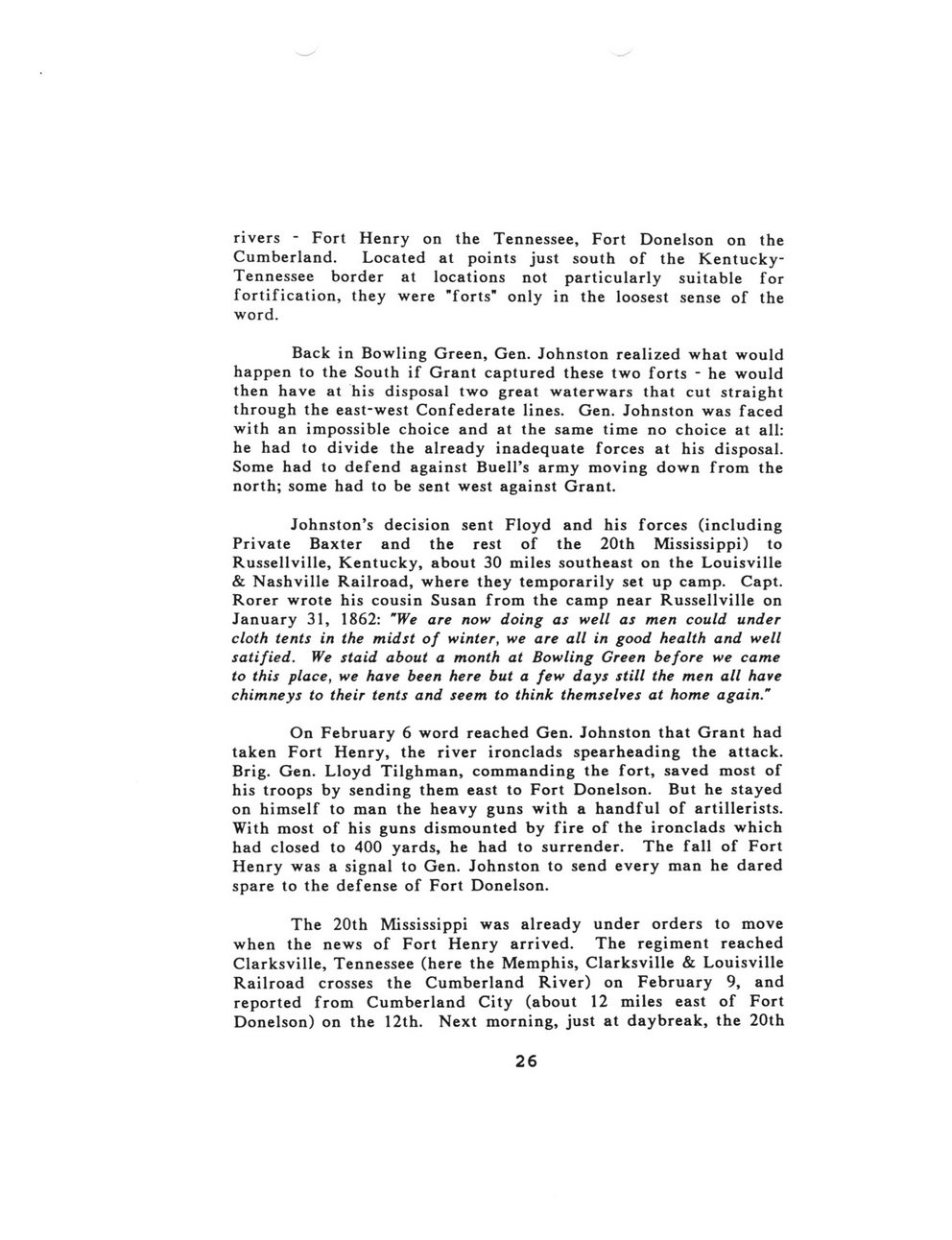This text was obtained via automated optical character recognition.
It has not been edited and may therefore contain several errors.
rivers - Fort Henry on the Tennessee, Fort Donelson on the Cumberland. Located at points just south of the Kentucky-Tennessee border at locations not particularly suitable for fortification, they were "forts" only in the loosest sense of the word. Back in Bowling Green, Gen. Johnston realized what would happen to the South if Grant captured these two forts - he would then have at his disposal two great waterwars that cut straight through the east-west Confederate lines. Gen. Johnston was faced with an impossible choice and at the same time no choice at all: he had to divide the already inadequate forces at his disposal. Some had to defend against Buell?s army moving down from the north; some had to be sent west against Grant. Johnston?s decision sent Floyd and his forces (including Private Baxter and the rest of the 20th Mississippi) to Russellville, Kentucky, about 30 miles southeast on the Louisville & Nashville Railroad, where they temporarily set up camp. Capt. Rorer wrote his cousin Susan from the camp near Russellville on January 31, 1862: ?We are now doing as well as men could under cloth tents in the midst of winter, we are all in good health and well satified. We staid about a month at Bowling Green before we came to this place, we have been here but a few days still the men all have chimneys to their tents and seem to think themselves at home again." On February 6 word reached Gen. Johnston that Grant had taken Fort Henry, the river ironclads spearheading the attack. Brig. Gen. Lloyd Tilghman, commanding the fort, saved most of his troops by sending them east to Fort Donelson. But he stayed on himself to man the heavy guns with a handful of artillerists. With most of his guns dismounted by fire of the ironclads which had closed to 400 yards, he had to surrender. The fall of Fort Henry was a signal to Gen. Johnston to send every man he dared spare to the defense of Fort Donelson. The 20th Mississippi was already under orders to move when the news of Fort Henry arrived. The regiment reached Clarksville, Tennessee (here the Memphis, Clarksville & Louisville Railroad crosses the Cumberland River) on February 9, and reported from Cumberland City (about 12 miles east of Fort Donelson) on the 12th. Next morning, just at daybreak, the 20th 26

Baxter, Marion Francis Marion-Francis-Baxter-Bio.-026